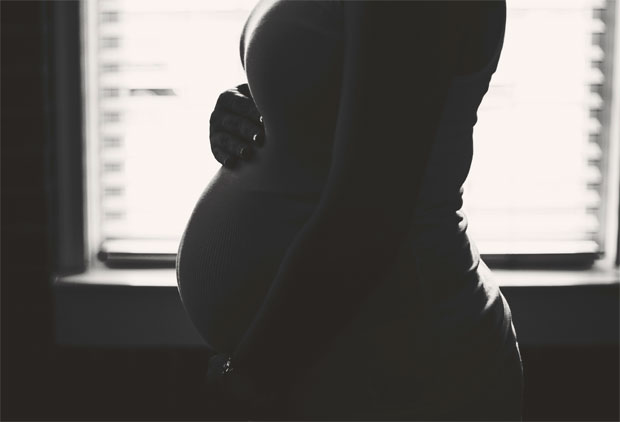How Does Acupuncture Work for Fertility?

How Does Acupuncture Work for Fertility?
If you’ve ever wondered how acupuncture can work for anyone suffering from fertility issues, you’re in luck. Read this article by Dr Tsagaris to find out more.
Acupuncture can increase the chances of getting pregnant for women undergoing fertility treatment by 65%, according to The Guardian newspaper and based on a very thorough study. The research was conducted by Dr Eric Manheimer, Grant Zhang, Laurence Udoff and associates from the University of Maryland School of Medicine, Georgetown University School of Medicine, Washington and the University of Amsterdam, Holland.
Don’t Make Your Fertility Journey More Stressful
Fertility is a stressful, complicated issue. It’s also an expensive health concern, with a lot of contributing factors interfering with pregnancy outcomes.
Research claims that conventional treatments – such as IUI, IVF, SCSI, hormonal interventions – offer better chances of success if they are assisted by a course of acupuncture, particularly when the chances of success were very low in the first place.
So, How Does Acupuncture Work for Fertility?
This is a question that has many scientists investigating and exploring the possible mechanisms involved during an acupuncture treatment.
Acupuncture is a Chinese medicine method using the Chinese medical framework to assist a patient’s health and involves the placing of refined sterilised needles at particular acupuncture points, according to the appropriate diagnosis. Its traditional purpose is to regulate energy flow within the body and address underlying pathological factors that manifest in specific health concerns and lead to infertility fears.
Preliminary studies suggest that acupuncture may improve menstrual health and menstrual irregularities, and idiopathic or unexplained infertility. Some research claims that acupuncture can influence female reproductive function, although the actual mechanism involved is not yet clarified.
Some doctors, however, do suspect that acupuncture may reduce stress and increase blood flow to the uterus, increasing the chances of a successful conception. Providing the ovaries and uterus with appropriate nourishment and increased blood flow may assist in increasing production of oestrogen and progesterone. This encourages the growth of healthy follicles and improves egg quality, while facilitating the thickening of the uterine lining to prepare the new mother for conception and anticipated implantation.
Acupuncture promotes the growth of new topical blood vessels (angiogenesis) and specifically increases blood flow to the ovaries. During mid-cycle – when the follicles and the eggs are developing – is a critical time for acupuncture intervention, to assist with blood oxygenation and circulation and nutritional support to the follicles. This improves integrity and their potential to fertilise resulting in conception.
Eggs with more energy (ATP) have a better chance of making viable embryos. However, the mitochondria of older eggs are strong enough at producing ATP. Also, we need to consider that older follicles are less protected against cellular damage and hormonal fluctuations, usually leading to less successful IVF outcomes or potentiating later miscarriage.
Quality Over Quantity
Usually, patients are concerned about the number of eggs they may have, when what’s most important is the quality of the eggs, irrespective of the number. All it takes is one good egg, the healthy sperm and the right conditions for conception to happen.
It is very commonly seen in clinical practice that the FSH (Follicle Stimulating Hormone) is noticeably high, creating many but premature eggs contributing to a lack of healthy usable eggs. The egg quality is attributed to a healthy ovarian function and hormonal balance from the Hypothalamus-Pituitary (HPA) relationship with the ovaries. Some studies suggest that acupuncture may affect the HPA axis by decreasing cortisol concentrations and insulin excess by circulating β-endorphin.
The hypothalamic pituitary gonadal (HPG) axis by modulating central β-endorphin production and secretion, thereby influencing the release of hypothalamic GnRH and pituitary secretion of gonadotropin. It may also decrease hyperinsulinemia by lowering high concentrations of circulating β-endorphin. The central and peripheral β-endorphin systems, despite their independent functioning, may both be stimulated by different nerve activity induced by acupuncture.
Certain herbs, or Chinese herbal decoctions, formulated specifically for the individual needs of the patient, have now been explored in laboratory studies to markedly enhance mitochondrial activity and ATP production. This is partly due to their potent antioxidant and regulative properties, as well as the fact they have a positive effect on the female reproductive system. Time-tested Chinese formulas may be in combination with acupuncture and conventional interventions to maximise the potential of conception.
Clinical and experimental evidence illustrates that acupuncture can be a suitable alternative or complement to any conventional fertility treatment, maximising the chances of conception without bringing on adverse side effects.
Guest Article.




